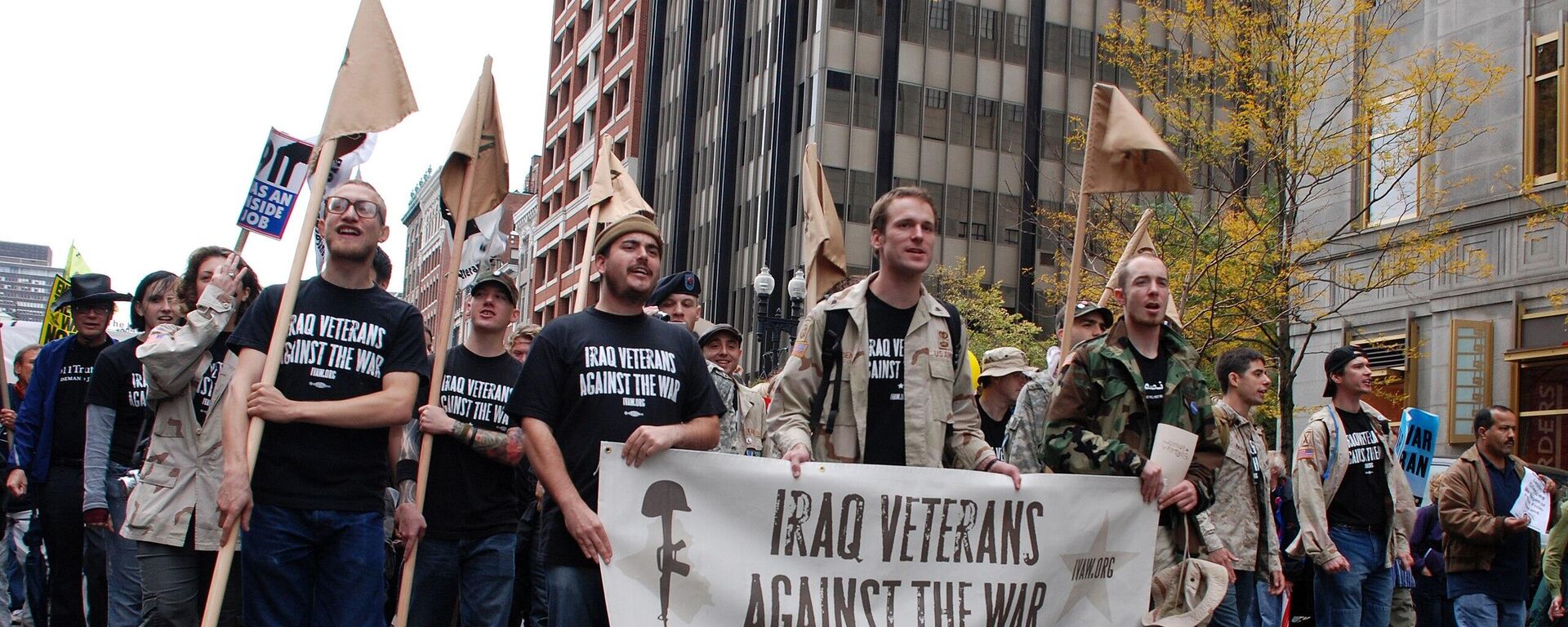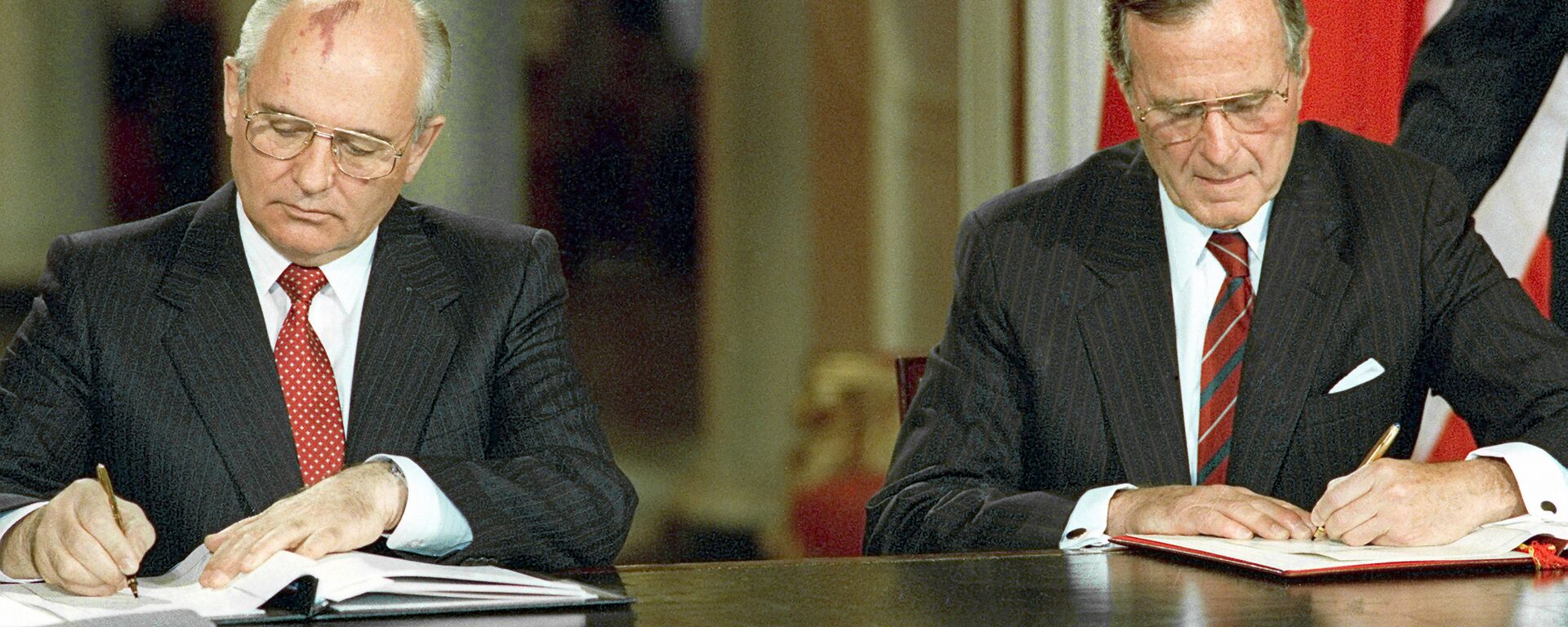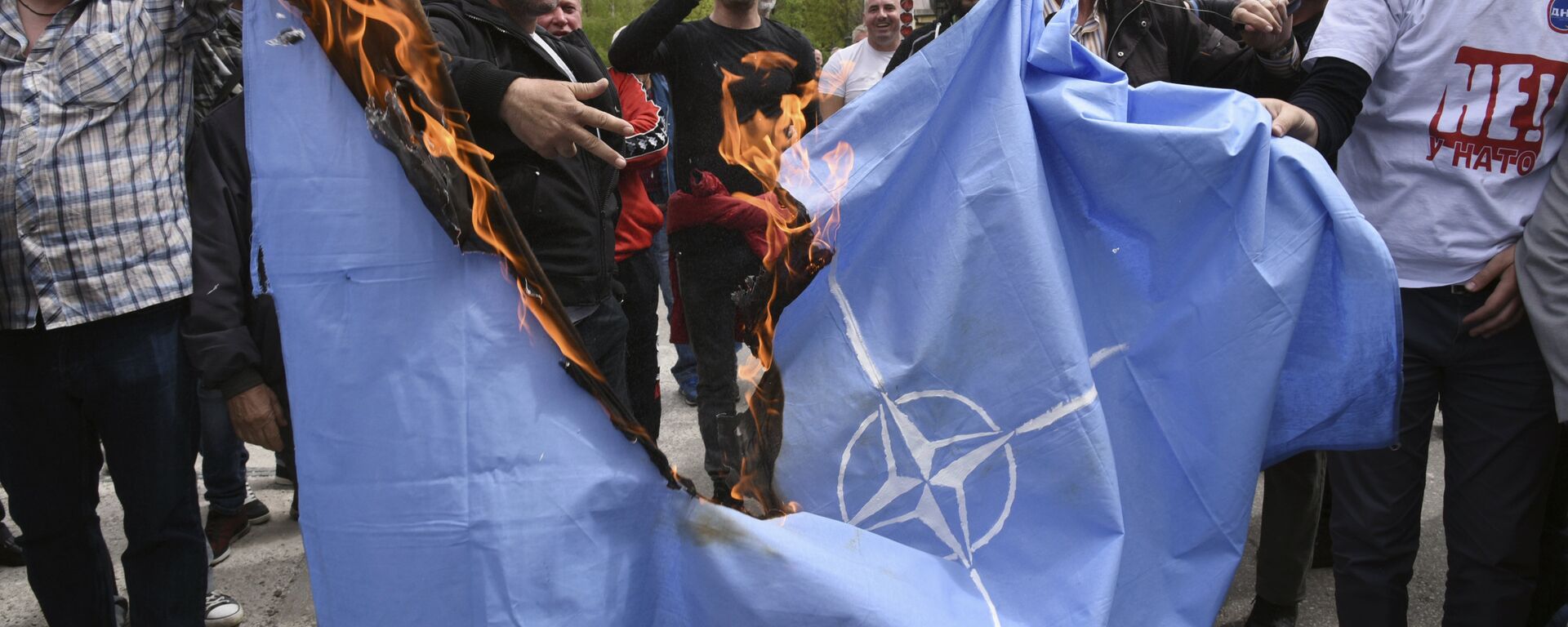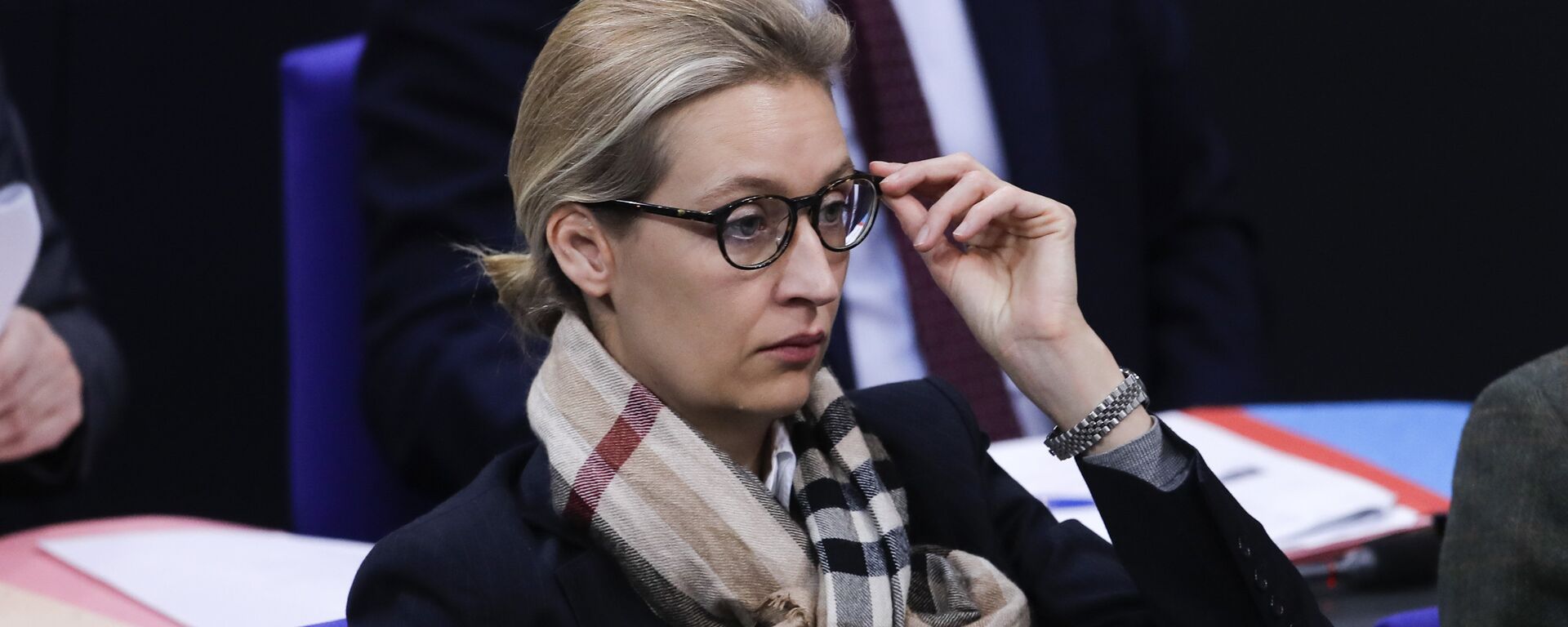https://sputnikglobe.com/20240606/as-politicians-seek-war-will-the-people-pull-west-back-from-the-brink-1118797205.html
As Politicians Seek War, Will the People Pull West Back From the Brink?
As Politicians Seek War, Will the People Pull West Back From the Brink?
Sputnik International
Powerful interests within Western governments have perpetually stoked conflict with Russia, notes one analyst, but skepticism towards war is widespread among the American and European public.
2024-06-06T03:21+0000
2024-06-06T03:21+0000
2024-06-06T03:48+0000
analysis
vladimir putin
joe biden
russia
ukraine
west
nato
nazism
donbass
world war iii
https://cdn1.img.sputnikglobe.com/img/07e8/06/06/1118798863_0:0:3072:1728_1920x0_80_0_0_92d42adbdf353e7baeb6fff017155a13.jpg
Public opinion in the West over which country played the primary role in defeating Nazism has shifted dramatically over the decades. In 1945, a survey of the French public found 57% believed the Soviet Union contributed the most towards the effort. By 2004 only 20% believed this, with 58% of French people now saying the United States deserved the most credit for Hitler’s defeat.One often overlooked aspect of the conflict, however, is the extent to which the American public initially opposed the country’s entry into World War II. A poll taken in 1939 characterized US sentiment, revealing that only 16% of Americans favored sending the country’s Army and Navy to help Europe fight Germany.Some figures, including a few prominent North American industrialists like Henry Ford and other well-known personalities, expressed sympathy towards the fascist cause. Others, with the horrors of World War I still fresh in mind, were simply skeptical of another bloody European conflict. Whatever the motivation, anti-war sentiment has played an important historical role in the American psyche, with luminaries like Eugene V. Debs, Smedley Butler and Martin Luther King Jr. all criticizing the militarist impulse.In 2024, anti-war sentiment is perhaps once again the default position of most Americans amid widespread critique of decades-long engagements in Iraq and Afghanistan. But, as the Western political establishment signals repeated willingness to escalate tensions with a nuclear-armed Russia, will the objections of the majority of Americans be drowned out amid another march towards conflict?Serbian-American journalist Nebojsa Malic joined Sputnik’s The Final Countdown program Wednesday to discuss the issue as host Angie Wong asked whether recently leaked NATO war plans against Russia represent the typical contingencies devised by the alliance or evidence of a genuine descent towards world war.“It could be a little bit of both,” said the columnist, who has written for RT and Antiwar.com. “The fact that it was leaked to the press is definitely a signal, and it’s definitely something coming out of the kitchen of people who are obsessed with narratives, as the British and US government are.”“I think a lot of this is just sort of a demonstration for the media, but that part I’m not sure about is whether it’s meant to reassure the European allies of the US ahead of the European Parliament elections or to send some kind of message to the Russians, because I don’t think the Russians are getting the message in that case that the West has intended them to.”Malic suggested the leak is another example of the West’s aggressive posture towards Russia, a dynamic he says is typically ignored in Western media. The journalist noted Russia sent the US and NATO a proposal in December 2021, some three months before launching its special military operation in the Donbass, seeking to have its minimum security needs met.Historically the West failed to include Russia in the European security architecture that emerged after the end of the Cold War – a fact many critics say helped lead to the current conflict with Ukraine. Western officials have confirmed Russian President Vladimir Putin asked to join NATO, but was rebuffed. The military alliance began a steady expansion eastward in the late 1990s, violating US assurances to former Soviet leader Mikhail Gorbachev that “NATO would not move one inch to the East” after incorporating a newly-reunified Germany.“If he really did say that at the summit then we need to revise our timelines here and propose that maybe the conditions for a clash between the US and Russia were initiated at that meeting,” he suggested.The Biden administration’s bellicosity notwithstanding, evidence suggests the American public is growing weary of the Ukraine conflict, with about half of people polled saying the country has spent too much money supporting Kiev’s war effort. Many European politicians appear to share Washington’s fixation on the proxy war, however, with NATO leaders recently making plans to continue backing Ukraine in the event of Donald Trump’s return to the White House.But Europe’s militaries would struggle in the absence of American assistance, Malic claimed.“The Poles have a massive military in terms of numbers, but they’ve also been rumored to have been sending them piecemeal into Ukraine as sort of volunteers and bringing them back in coffins,” he added. “It doesn’t seem like the European Union, the European part of NATO, has much of a force and I think the US did that by design. The idea was always with these militaries to be more adjunct and sort of prevent them from developing independently, because some kind of independent Europe was Washington’s worst nightmare in terms of maintaining its global hegemony.”Evidence suggests the European people share much of Americans’ skepticism towards war on Russia, with rightwing French politician Marine Le Pen surging in popularity while pledging to remove the country from NATO.In Germany, the rightwing party Alternative fur Deutschland has also risen in the polls while questioning Berlin’s foreign policy, causing alarm among establishment German lawmakers. Divisions persist in the country, which historically claims a “special relationship” with Moscow and significant cultural links given the history of East Germany.For now, Washington remains the most influential outside force in German politics, but will the cratering of the country’s economy under sanctions on Russian energy once again drive it closer to Moscow’s camp? If industrial decline does not force a change in foreign policy, the prospect of the right’s return to power just might do so in a country still haunted by its 20th-century history.In any case, pulling the Western world back from the brink of conflict may depend on the efforts of an engaged citizenry who refuse to fight a catastrophic nuclear war.
https://sputnikglobe.com/20240301/aaron-bushnell-protest-part-of-hidden-history-of-anti-war-veterans-1117064444.html
https://sputnikglobe.com/20210530/how-story-of-broken-nato-non-enlargement-pledge-upends-wests-effort-to-depict-russia-as-aggressor-1083035472.html
https://sputnikglobe.com/20170604/russian-nato-membership-commentary-1054301705.html
https://sputnikglobe.com/20240122/afd-leader-calls-for-german-dexit-vote-to-break-from-eu-1116321159.html
russia
ukraine
west
donbass
germany
2024
John Miles
https://cdn1.img.sputnikglobe.com/img/07e8/01/19/1116388787_0:0:1316:1316_100x100_80_0_0_77e70d36afd983012b1c5d38ddb84156.jpg
John Miles
https://cdn1.img.sputnikglobe.com/img/07e8/01/19/1116388787_0:0:1316:1316_100x100_80_0_0_77e70d36afd983012b1c5d38ddb84156.jpg
News
en_EN
https://cdn1.img.sputnikglobe.com/img/07e8/06/06/1118798863_0:0:2732:2048_1920x0_80_0_0_ad93a08135536b885e3b42208041e85e.jpg
John Miles
https://cdn1.img.sputnikglobe.com/img/07e8/01/19/1116388787_0:0:1316:1316_100x100_80_0_0_77e70d36afd983012b1c5d38ddb84156.jpg
nato expansion, ww3, wwiii, western dominance, us hegemony, anti-russia bias, anti-russia sentiment, nuclear war, ukraine crisis, war over ukraine, war with russia, fight russia, war against russia
nato expansion, ww3, wwiii, western dominance, us hegemony, anti-russia bias, anti-russia sentiment, nuclear war, ukraine crisis, war over ukraine, war with russia, fight russia, war against russia
Powerful interests within Western governments have perpetually stoked conflict with Russia, notes one analyst, but skepticism towards war is widespread among the American and European public.
One often overlooked aspect of the conflict, however, is the extent to which the American public initially opposed the country’s entry into World War II. A poll taken in 1939 characterized US sentiment, revealing that only 16% of Americans favored sending the country’s Army and Navy to help Europe fight Germany.
In 2024, anti-war sentiment is perhaps once again the default position of most Americans amid widespread critique of decades-long engagements in Iraq and Afghanistan. But, as the Western political establishment signals repeated willingness to escalate tensions with a nuclear-armed Russia, will the objections of the majority of Americans be drowned out amid another march towards conflict?
“It could be a little bit of both,” said the columnist, who has written for RT and Antiwar.com. “The fact that it was leaked to the press is definitely a signal, and it’s definitely something coming out of the kitchen of people who are obsessed with narratives, as the British and US government are.”
“Officially they have to say, ‘oh, yeah, we’ll defend every inch.’ But from a purely military perspective, they’re not going to put troops in the Baltics,” he claimed. “The Baltics are a speed bump. Their job is to buy NATO 15 minutes”
“I think a lot of this is just sort of a demonstration for the media, but that part I’m not sure about is whether it’s meant to reassure the European allies of the US ahead of the European Parliament elections or to send some kind of message to the Russians, because I don’t think the Russians are getting the message in that case that the West has intended them to.”
Malic suggested the leak is another example of the West’s aggressive posture towards Russia, a dynamic he says is typically ignored in Western media. The journalist noted Russia sent the US and NATO a proposal in December 2021, some three months before launching its special military operation in the Donbass, seeking to have its minimum security needs met.
“This gets overlooked because a lot of people tend to believe that everything started on February 21st [2022],” Malic stressed. “Even Biden himself mentioned the other day in a rambling interview with Time magazine that he had apparently told Putin in Switzerland during their meeting that instead of the ‘Finlandization’ of NATO, he’s going to seek the ‘NATO-ization’ of Finland.”
“If he really did say that at the summit then we need to revise our timelines here and propose that maybe the conditions for a clash between the US and Russia were initiated at that meeting,” he suggested.
But Europe’s militaries would struggle in the absence of American assistance, Malic claimed.
“You basically have three militaries that might actually independently operate,” said the columnist, who questioned the potency of the German Bundeswehr and French armed forces while claiming “the Turks… don’t want any part of this.”
“The Poles have a massive military in terms of numbers, but they’ve also been rumored to have been sending them piecemeal into Ukraine as sort of volunteers and bringing them back in coffins,” he added. “It doesn’t seem like the European Union, the European part of NATO, has much of a force and I think the US did that by design. The idea was always with these militaries to be more adjunct and sort of prevent them from developing independently, because some kind of independent Europe was Washington’s worst nightmare in terms of maintaining its global hegemony.”
For now, Washington remains the most influential outside force in German politics, but will the cratering of the country’s economy under sanctions on Russian energy once again drive it closer to Moscow’s camp? If industrial decline does not force a change in foreign policy, the prospect of the right’s return to power just might do so in a country still haunted by its 20th-century history.
In any case, pulling the Western world back from the brink of conflict may depend on the efforts of an engaged citizenry who refuse to fight a catastrophic nuclear war.






